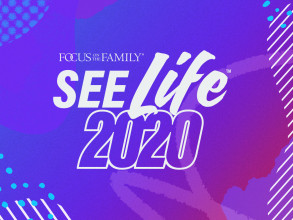
The War of Words
In this Adventures in Odyssey drama, a carelessly uttered word from Eugene creates havoc as it becomes the fashionable insult, resulting in a lesson about the power of words.
Home » Episodes » Focus on the Family Broadcast » Honoring the Preborn: Cerian’s Story (Part 2 of 2)
Excerpt:
Dr. Sarah Williams: The very first reaction was, “They’ve got me muddled up. They’ve got the scan muddled up with somebody else’s body.”
Jim Daly: Right, it’s their problem.
Sarah: Because I could see the baby on the screen. And then you were describing what it’s like to watch a baby in an ultrasound, and I’m sitting there seeing the baby moving. I can’t read an ultrasound. And I’m thinking, “This can’t be right.”
End of Excerpt
John Fuller: That’s Sarah Williams and she’s back with us today on Focus on the Family. I’m John Fuller and your host is Focus president and author, Jim Daly.
Jim: We heard a portion of Sarah’s powerful story last time, and we want to continue today. It’s going to be good. I can guarantee that. The reason we’re bringing her story to Focus on the Family is because of our commitment to life. We stand on that pillar. We believe every human being is created in the image of God from conception to the grave, and we as Christians in this culture need to proclaim that truth and step forward to defend innocent human life. And that’s why we created our Alive from New York event back in May of 2019. We had wonderful speakers and great music and we culminated the entire celebration in Times Square with that 4D ultrasound of a baby. Uh, and it was incredible. Everyone in Times Square lit up when we put that ultrasound up on the big screens. And we’re translating that to an online celebration on September 26th with our See Life 2020 event. You can go to our website and get more details, but it’s going to be a free, online program that will highlight powerful pro-life stories, great worship music and, of course, again, we will be highlighting a 4D ultrasound of a precious baby. And it’s going to be a wonderful presentation. I know the run-of-show. I – it’s coming together really well. But, meanwhile, today’s program with Sarah Williams reflects our passion and fire for standing for human life no matter what. If you missed last time, you got to get the download. You’re instantly going to love this woman and her story.
John; Uh, Sarah really is a gifted speaker and a teacher and a writer. And she’s a research professor at Regent College and a research associate at the University of Oxford. Sarah and her husband, Paul, have two adult daughters. And she’s chronicled her story so beautifully in the book titled Perfectly Human: Nine Months with Cerian. We have that and more details about See Life 2020 at focusonthefamily.com/broadcast.
Jim: Sarah, welcome back to Focus on the Family.
Sarah: Thank you.
Jim: We shared your story last time, but just to give a quick recap, you and your husband, Paul, were expecting your third daughter when your world was turned upside down. At 20 weeks, she was diagnosed with a lethal skeletal dysplasia, meaning the birthing process would have literally crushed her bones. Doctors wanted you to terminate, but you and Paul wanted to follow what you felt was God’s will to see the pregnancy through. And you faced great opposition from colleagues and friends. The you had, I’m sure, the medical professionals and others who had opinions about your decision – for you and Paul – your decision to take the baby to term. What were some of those things that those outside of your family of faith, um, said to you at that time?
Sarah: Yeah, I really quickly realized, um, with some shock that in our culture the decision not to abort an abnormal fetus requires an explanation.
Jim: Huh, interesting, yeah. Why?
Sarah: Because it’s considered odd.
Jim: Yeah.
Sarah: “Why – why would you do this?”
Jim: Yeah. I can hear that.
Sarah: And it was just – there was curiosity but also complete disbelief. So, the next day when we went back to the hospital and we told them we were decided to carry the baby to term, the doctor didn’t even try to hide his surprise. And he just kept saying over and over again, “But this baby won’t live.”
Jim: Right.
Sarah: “This baby won’t live.” And – and over 85%, we discovered, of those who find themselves in the situation we found themselves in do decide to terminate. And we encountered both disbelief and a degree of hostility. I remember my – my doctor saying to me as she shuffled papers on her desk and sort of put her pencil down noisily, “So, you decided not to terminate because of, um, strong religious beliefs. Is that right?”
John; Like that’s a terrible offense.
Jim: Right.
Sarah: Like it sort of – but also – and I thought I could say to her, “Yes.” And I did. I said, “Yes, I do have strong religious beliefs, but I’m not sure that’s why I’ve decided not to terminate.”
John; Hmm.
Sarah: And there was this kind of silence when she stopped shuffling her papers and she actually looked at me.
Jim: Right, now she’s puzzled.
Sarah: Now she’s puzzled. And I said, “This is a beautiful person who’s teaching me how to love and teaching me how to hope. And I want to spend every day with her that I possibly can.” And, um, I went out of that hospital little room from a doctor, leaving her with a tissue in her hand (chuckles) wiping her eyes.
Jim: So, you teared her up.
Sarah: Yeah, because she didn’t understand.
Jim: Yeah. Well that…
Sarah: And she wanted to put me in a box…
Jim: Right.
Sarah: …You know, and make Cerian a rule or an ethical principle.
John; Yes.
Sarah: And somehow that was a form of dehumanizing her as well. She needed an explanation for my decision so she could put me in a religious box, and then it sort of ticked something for her. But the idea that this was a person that I could love and have a relationship with, that was really curious. And then I would have – went to my college where I was teaching at the university, and some of my college colleagues were just really troubled by my decision – particularly remember one of my more militant feminist colleagues saying to me, “But – but what happens if this baby lives?” And I’m thinking, “That will be great.”
Jim: Right.
Sarah: “What happens if she – if the baby lives and actually you discover that the baby’s got profound disabilities? That could ruin your career.” And she sort of looked at me like her eyes were about to pop out because in her world, she went on to say, “It’s your responsibility to exercise your right to choose. There have been women in the past who fought to make sure you had a right to choose.” And for her, her career was really significant to her identity. And she couldn’t understand why I might put my career, as it were, as she saw it, in – in some jeopardy by having a child with disabilities.
Jim: You know, Sarah, as you express it, the word that comes to my mind, as you describe it, is, she was threatened.
Sarah: She was.
Jim: Now why?
Sarah: She was threatening.
Jim: She was threatened.
Sarah: But this woman was threatened.
Jim: And it’s just interesting that they can’t be satisfied with what you want to do.
Sarah: I think also just a tad frightened because Cerian represented a whole value system, a way of thinking and being in the world which somehow didn’t fit with the hierarchy of achievement and power, all the categories we have of what constitutes a healthy life, a healthy body, success, somehow got shaken.
Jim: And, you know, in the – in the Western culture today, as you describe that, what strikes me is a silent question that I’m – I am assuming, so I want to make that known – but it’s almost like she’s saying, “If you’re so profoundly convinced that this is right, am I wrong?”
Sarah: Yes.
Jim: (Laughter) Right? That’s really the point. And then you fight more viscerally to deny it.
Sarah: Yes. And in the book, I’ll tell you what happened to that particular lady who fought me so vehemently. When she saw how sad I was but actually how clean my grief was after Cerian died, she became my friend. But I won’t spoil the story. It changed how she saw something. And I was able to say to her, “How do you grieve a termination?” It’s so much more difficult. In the short term, it might have looked like the best option, the line of least resistance. But in the long term, how do you grieve a termination? And that woman had a different story.
Jim: Well, and what’s amazing about that is through your and Paul’s life, you’re demonstrating it. This reminds me of the early church. It’s not finger-wagging. It’s not arguing the finer legal points of abortion or choice. It’s just living it and then instructing almost by accident what you’re doing and then that conviction the Lord can use, right? I mean, that’s what happened.
Sarah: But what’s so strange is what I realized when I was carrying Cerian is how a society treats its most vulnerable members – the ill, the sick, the elderly – tells you everything you really need to know about how that society thinks about people.
Jim: That’s exactly right.
Sarah: …Because ultimately, Jesus identified himself completely with the weak and the vulnerable. And how our society treats the vulnerable is really how we treat God.
Jim: Sarah, I really want to lean in there, and you’ve got all this chatter coming, both you and Paul, people, friends saying things to you. How did your relationship with the Lord change in this period of time? What was happening at the most core relationship that you have with your Heavenly Father?
Sarah: Those 16 weeks were a journey of a lifetime, literally. But they were a transformational journey for me in my relationship with God, changed everything, turned everything upside down.
Jim: How? What was going on? That sounds profound. And I know some women, particularly, are saying, “Sarah, tell me.”
Sarah: Because everything about the situation was not what I wanted.
Jim: (Laughter).
Sarah: I hadn’t planned it. I didn’t want a malformed child. This wasn’t what I wanted. And I also knew that somehow it didn’t feel like it was a situation that was optimal anyway. And yet, even in that deep distress and in that difficulty, God was so present. And nowhere was that more apparent than actually at the time of the labor.
John; Hmm.
Jim: Yes.
Sarah: I can tell you a little bit about that.
Jim: Sure, no, I think we need to hear that.
Sarah: Let me use the image of a Dutch doll first. You know – have you seen those Dutch dolls, where they – inside there’s a tiny little baby doll…
Jim: Oh, right.
John; The nesting dolls, yes.
Sarah: …And then you’ve got a bigger doll, and then – you call them nesting dolls in the U.S.?
John; We do.
Sarah: A nesting doll. Well, the pregnancy was like a nesting doll – Cerian in the middle, and I was holding her in my body. And Paul, my lovely husband, was holding us both. And our community, our church family, were holding our family. But most of all, we were all being held by this extraordinary love of God.
John; Hmm.
Jim: Yeah.
Sarah: And so, it was an incredibly painful but very safe place to be…
Jim: Yeah.
Sarah: …Because we were being held.
Jim: And you felt it, and you knew it.
Sarah: Oh, we knew the grace of God. And then the labor came.
Jim: And this is really critical. I want to emotionally grab this because to me it’s such a powerful moment. You go into labor; most women and their husbands are going to be excited. This is that moment. Water breaks – I mean, this is it, especially your first time. This is your third child now, but just that expectancy – I mean, I remember for Jean, one of our boys was born at 2 in the morning. So, I got to run the red lights late at night…
John; (Laughter).
Jim: …Thinking surely a police officer is going to pull me over. Nobody did. I got to the hospital quickly because Jean was – she was ready. And I think she gave birth to Troy 10 minutes after we arrived at the hospital. Everybody’s got a smile, even hearing that.
Sarah: Yeah.
Jim: But you go into this labor knowing the outcome’s going to be different.
Sarah: I tried to pack my labor bag probably dozens of times because I could not get round, I am packing a labor bag to go into labor to face a death of this baby that I’m going to love…
Jim: Even that was difficult, just to pack your things to go to the hospital.
Sarah: It was terrible. I thought, what am I going to do? And anticipating a birth and a death is not right.
Jim: Right.
Sarah: You should be moving towards life. And I knew that as I let go of Cerian out of my body, I was letting her go into her own death. And what was most frightening of all was the thought that she would suffer because we’d been told that when she went down the birth canal, her little bone structure would crush because her bones weren’t strong enough for the birth process. And that was the thing that haunted me more than any other thing, to think, are we doing the right thing here? ‘Cause she’s probably going to die in real pain. She won’t be able to breathe. And so, I’m packing my labor bag, and I’m trying to visualize, as you do. You need to visualize when you’re preparing for a birth. That’s how they teach you to do it when you do your prenatal care. But how do you visualize that?
Jim: Right.
Sarah: And in the end, an extraordinary thing happened, which I write about in the book. And I tell the story. My own blood pressure collapsed. Labor happened. When it came, it was a medical crisis for me. And it nearly – yeah, I was rushed into hospital. I mean, by the grace of God, I was already in the hospital having a check, and then I started to go unconscious because my blood pressure collapsed because I developed polyhydramnios. When there’s so much amniotic fluid, because of the deformity, the baby can’t swallow the fluid. So, I just swelled up like a balloon.
Jim: Right.
Sarah: And, um, it was putting too much pressure on the blood vessels, and it caused my blood pressure to collapse. So, it was terrifying for Paul to get a message in a middle of a business meeting in London, going, “Oh, she’s going into labor. Well, actually, Paul, your wife’s collapsed. You need to get to the hospital right now.” And he had to take a taxi across London, not knowing he was even going to get there in time. And my mom, who was there with me at the hospital, she stood outside – and they wrapped me in the polyethylene wrapping, and I was moving into unconsciousness with all the – all the emergency equipment coming round – um, thinking she was going to lose me. And that – we never prepared for that.
Jim: Right. That wasn’t part of the equation.
Sarah: Oh, no, it wasn’t. And it wasn’t part of the doctor’s equation either.
Jim: Right.
Sarah: Um, and I remember as I went unconscious praying Psalm 23. And I don’t remember anything until I came round and Paul sitting next to me. And we said to each other, “We didn’t expect that, did we?”
John; Well, our guest today on Focus on the Family with Jim Daly is Sarah Williams. And, uh, she has captured this moving story in her beautiful book, Perfectly Human. Get your copy of that when you call 800-A-FAMILY. Or online, we’re at focusonthefamily.com/broadcast.
Jim: There’s so many beautiful stories – underlying stories of this. I was thinking as you were speaking about your baby being safe inside of you….
Sarah: She was perfectly safe.
Jim: …And able to live, in essence…
Sarah: Perfectly safe.
Jim: …And that her situation – she would be crushed as she went through the birth canal. I mean, what an expression like the Lord – right? – our relationship with God, that He must feel when we’re in Him, when we’re with Him, that we are safe no matter what.
Sarah: No matter what’s happening around us. And so, this happened. And then they had to induce the labor. The labor was long. It was 22 hours. It shouldn’t be like that with a third pregnancy. And, um, at one point, I reached the end, and I just could not keep going. The contractions were so painful. And I knew that with every contraction, she was going. I was losing her. And I’ll never forget what Paul said to me. He laid down on the floor next to me. I was on the floor doing what you have to do when you’re trying to give birth. And I said, “I can’t do this.” And he said something I’ll never forget. He said, “You’re only doing what every parent has to do. You have to let her go.”
Jim: You have to let her go.
Sarah: “You have to let her go.” And it really hurts when we let our children go, whether they’re going off to college…
Jim: Right.
Sarah: …Whether they’re getting married, whether they’re 5 and we’re taking them to preschool for the first time. It’s really hard to let our children go. And, um, so, in a sense, I was only doing what every parent has to do, which is to let their child – give their child back to God.
Jim: Yeah, and that happens in a process typically, right?
Sarah: Yeah.
Jim: Where we learn that over 18, 19, 20 years. But to do it…
Sarah: You do. But it still hurts your heart.
Jim: Well, and to do it right then, I mean…
Sarah: Yeah.
Jim: …As you’re giving birth to have that sense of having to let go and give this child to God, that’s what’s so hard.
Sarah: And – but this is where the miracle part of the story happened. I was on my own in the room. I had an epidural after that. Paul went to sleep. I was on my own in the labor room, 1 o’clock in the morning. And I can only describe the presence of God came into the room like I’ve never known the presence of God before. There was a holy presence. And I knew that she’d gone. Later on it was confirmed – we didn’t have any fetal monitoring. We didn’t want it. It was confirmed that she had indeed died at that time just before the last stage of labor. And you know what? She died of a placental abruption. That can happen in any birth, painless, cutting off the blood supply to her little body. And she just died enveloped in my body and my love and then seamlessly enveloped in the love of God. And in the end, her abnormalities, she didn’t die of them.
Jim: Yes, I mean, what a beautiful story.
Sarah: And God the King came just to take her home, sparing her one moment of pain.
Jim: Yeah.
Sarah: And His love was present. And that for me was probably one of the most profound experiences of my whole life, realizing, here’s this little baby that our culture thinks doesn’t deserve to live, in a way, doesn’t even have the same legal rights as a, quote, “normal baby,” not treated under the law the same in Britain, so in a sense, a disposable item.
Jim: Right, a dehumanizing.
Sarah: A dehumanize – not even quite human.
Jim: Right.
Sarah: And God came, and it was a demonstration of His love that’s turned all of my ways of thinking about everything upside down.
Jim: Yeah. Well, that’s what I so appreciate about your story right from the beginning when you talked in that way, that God spoke to you and Paul’s heart to say, “Love this child.”
Sarah: And He was faithful.
Jim: Yeah, I just – I think that is so profound. Um, you did hold her.
Sarah: We did.
Jim: She was born.
Sarah: Yeah.
Jim: She was not alive. Um, describe even that finality for you, the closure that that provided you emotionally. Um, and what did you do? You said – you did some beautiful things in terms of taking her handprint and taking her footprint. Um, describe all of that. It’s so wonderful.
Sarah: It didn’t feel right at the time because we were really in an agony…
Jim: Yes.
Sarah: …Of pain. Um, but we’re so glad that we did take her little foot and we took a lock of her hair. And we dressed her up in beautiful clothes that people had given and – and just being able to dignify this body that was really very deformed.
Jim: Yeah, I can only imagine. But I – I appreciated that. That had to be extremely difficult…
Sarah: It was very hard.
Jim: …To not just now have that feeling again of being done with it.
Sarah: It was very hard. It was difficult. And I can’t skim over that. It’s not easy to see your own baby profoundly deformed. It’s not easy.
Jim: And to me, it’s a picture of leaning into the agony of this life rather than running from it.
Sarah: Yeah, exactly.
Jim: Yeah.
Sarah: Because the thing – the reflection I had when I looked at her little body – and I found it difficult because there was a disjunction between this beautiful person I’d experienced in my womb and this really deformed physical body. But what I realized was she had exactly the body she needed to do everything God had created her to do. And her little body was perfect for being in the womb. But it would never have run. It would never have held.
John; Hmm.
Jim: Right. Sarah, we’re right at the end now, and I’m mindful of women who are listening that have had difficulty giving birth. They had maybe a similar situation like you and Paul had, um, maybe something more severe. Who knows? My own brother and his wife lost their son to cancer at a far too early age. It runs that whole spectrum.
Sarah: Yes, exactly.
Jim: And I think you’ve expressed it so beautifully – how to live this life full of inadequacies and full of upsets and full of discouragement. But yet, the Lord calls us to something bigger. And again, I – I love so much what you and Paul did to demonstrate your love to this little girl because God told you to.
Sarah: Mm-hmm.
Jim: Now I want to ask you for that couple or for that woman who is hurting, she didn’t really go through the process quite the way you did, what would you say to her? What words of encouragement would you have for her? And maybe she’s been riddled with guilt. Maybe she made the decision, you know, “I just wanted to get rid of it. I didn’t want to deal with it.” And maybe that baby wasn’t even, uh, you know, handicapped in any way. That abortion woman, what would you say to her?
Sarah: There are two people in what you’ve just asked.
Jim: Yes.
Sarah: There are two women, two families, two parents. One are the parents who face unbelievable anguish and pain in their families. And then there’s the woman who’s chosen to have a termination. I would say different things to those two sets of people. People who are in that pain and anguish and you want to run from a situation of pain, it’s just saying, where we find God is in the grief and the pain. He meets us there where we least expect Him. So, we don’t have to be afraid of the pain. And somehow allowing ourselves to open our hearts instead of close them down – and we close our hearts down even to our own children when they hurt us, but somehow opening our hearts to the pain that we fear, that can be a place where we encounter God. That’s what I would want to say. For those who’ve had miscarriages, for those who are infertile, want to have babies and they can’t, somehow, in the pain, we can meet with God. For the woman who made a different choice from mine… (silence) you can hear me being quiet. I just want to sit next to that woman and just be quiet for a really long time.
Jim: Because she knows.
Sarah: There aren’t any words. But in the same way, in that place, God is present, too.
Jim: Wow, Sarah Williams, powerful, powerful. I hope people know this – we say it almost every time, John – we’re here for you at Focus on the Family. We have caring, Christian counselors who would want to talk to you. And, you know, it might be that we have to take your name and number and call you back, but do it.
Sarah: Yes.
Jim: You’re not going to surprise us with anything. These people have heard – I would dare say – almost everything. And it’s okay. This is life. And helping one another is what God wants us to do. And we’re so grateful for you, Sarah, for your husband, Paul, for illustrating how to love the way God calls us to love, um, to the end, even if it’s just the beginning. And it’s so beautiful, your book, Nine Months with Cerian: Perfectly Human, powerful. Thank you.
Sarah: Thank you.
John; And we do have this beautiful story as Sarah has captured it in the book for you. We’ll be happy to send that to you. Just get in touch us. You can call the 800 number for that or for a consultation with one of our counselors. Our number is 800-232-6459. Or online you can find help at focusonthefamily.com/broadcast.
Jim: And as we’re looking toward our See Life 2020 event, consider partnering with us. You can save a baby’s life. It doesn’t get any better than that. Our Option Ultrasound program has saved an estimated 459,000 babies and we couldn’t do that without you, obviously. It takes $60 to save a baby’s life. So, join us today and take a stand for life. And right now, we’ll send you a copy of Sarah’s book Perfectly Human as our way of saying thank you for a monthly pledge of $60 to Focus on the Family today. You’ll be saving a baby and getting a fantastic book to read as well.
John; And, of course, if you’re not in a position to commit to a monthly pledge and we certainly get that. A lot of folks can’t. We will send the book to you for a one-time gift as well. Donate and get your copy of Perfectly Human at focusonthefamily.com/broadcast. Or call 800, the letter A and the word FAMILY. That’s 800-232-6459. On behalf of Jim Daly and the entire team, thanks for listening today to Focus on the Family. I’m John Fuller inviting you back as we once more help you and your family thrive in Christ.

Sarah Williams is a gifted teacher, writer, and communicator, known for bringing history to life in a way that speaks to our contemporary context. She is an Oxford-trained historian who taught as part of the modern history faculty at the University of Oxford before moving to British Columbia to teach the history of Christianity to international postgraduates at Regent College. Sarah’s research interests lie in British religious and cultural history. She is the author of Religious Belief and Popular Culture, Perfectly Human, and the co-author of Redefining Christian Britain. Her forthcoming book traces the relationship between Christianity and perceptions of gender and sexuality through time. Sarah and her husband, Paul, currently reside in the UK where she is a research associate at St Benet’s Hall, Oxford.

Your gift will equip pregnancy medical clinics across the country with ultrasound machines, resources and nurses’ sonography training so abortion-vulnerable mothers can see their babies … and be moved to choose life. Every $60 you donate will help save the life of one pre-born baby through our Option Ultrasound program. Give now, and we’ll say thanks with Sarah Williams' book, Perfectly Human: Nine Months With Cerian.

Sign the pledge to #LoveEveryHeartbeat and find out more about the transformational pro-life event we're calling See Life 2020.

Focus on the Family offers a one-time complimentary consultation from a Christian perspective.

Visit our online store and purchase a CD of today's program for yourself or to share with a friend.

Find Focus on the Family broadcasts, best-in-class books, referral recommendations, and more.

Should I have an abortion if my baby is likely to be born with a serious – potentially fatal – medical condition?

Ron and Genie's third pregnancy was something of a surprise, and they chose to recognize it as a blessing. But then the concerns started piling up, including markers for Down syndrome and significant heart defects.

When you lose a baby during pregnancy, not only do you have to accept the fact that you're not going to bring your baby home, but you also have to deal with massive hormone shifts and unpredictable emotions that hit you like a wave you never saw coming.

We learned to walk through an adverse pregnancy diagnosis when a routine ultrasound revealed that our baby girl had a fatal disorder.

Josh and Laura Huene share the heart-breaking story of the death of their baby daughter, Pearl, shortly after she was born, and offer hope and encouragement to other parents suffering a similar loss.

Unintentionally hurtful words said to those who are grieving the loss of a baby are more common than many of us realize. Yet we can reverse that trend.

Please let us know what you think about our broadcast! To help us provide the best possible programming for you, we need your honest feedback on how we're doing and how we can get better.

In this Adventures in Odyssey drama, a carelessly uttered word from Eugene creates havoc as it becomes the fashionable insult, resulting in a lesson about the power of words.

This discussion offers a preview of Volume #16 “Cultures in Conflict” from the That The World May Know video series, available below.

Debra Fileta will help couples better understand the four seasons of healthy relationships, what to expect during each one, and how to carefully navigate them for a stronger marriage. (Part 1 of 2)

Larnelle Harris shares stories about how God redeemed the dysfunctional past of his parents, the many African-American teachers who sacrificed their time and energy to give young men like himself a better future, and how his faithfulness to godly principles gave him greater opportunities and career success than anything else.

Our guests share their dramatic stories of surviving the attempts to end their lives while in their mother’s womb, providing a stark and undeniable counter argument to pro-abortionists who argue that a fetus is not a living human being. (Part 1 of 2)

Our guests share their dramatic stories of surviving the attempts to end their lives while in their mother’s womb, providing a stark and undeniable counter argument to pro-abortionists who argue that a fetus is not a living human being. (Part 2 of 2)